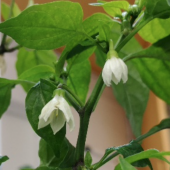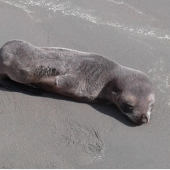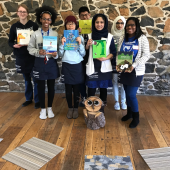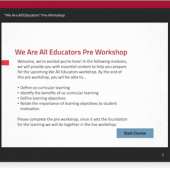
Abstract: To successfully implement the UN’s Sustainable Development Goals (SDGs), we must encourage all citizens to work together to enable a good life not only for us now but future generations too. In this article, we present an experiment carried out in autumn 2020 on a smart aeroponic garden. The goal of the experiment was to learn more about aeroponic cultivation and IoT technology and to acquire the know-how that would enable the participants to influence the environmental burden of food production. Our experiment showed that technology could also be used to introduce sustainable development themes to reach those target groups whose attention could not be attracted through other methods.
Continue Reading
Abstract: Early childhood educators emphasize that outdoor education learning outcomes are very important for preschoolers because early childhood education has a huge effect on the later stage of adulthood. Outdoor education can take place on playgrounds or in natural environments. The aim of this study was to determine some effects of an unstructured outdoor activity on preschoolers. A qualitative case study methodology was used in order to assess the effect of a bush explorer activity on children. In terms of establishing the research’s reliability, the qualitative analyses were supported by the triangulation data collection methods, which included non-participant observation and parents’ interviews. Content analysis was used in order to evaluate the data. According to the results, eleven different themes were determined: Problem solving, self-confidence, environmental awareness, observing and exploring, friendship and social skills, creativity, sharing experience, relaxing, having fun, conflict, and rejection. All themes, except conflict and rejection, are coherent with the literature.
Continue ReadingAbstract: Many have written about the different ways people participate in authentic scientific research. However, some of the means used to engender public support in research may prove ultimately counterproductive. In this opinion piece we argue that science is not fun much of the time, and more importantly that fun in itself is not an end goal in engaging public audiences. To draw participation, we need to focus on motivation; which can include fun some of the time.
Continue Reading
Abstract: A partnership between a university and local arboretum was expanded to include the campus library as a collaborator. Instead of having sustainability-themed programming between the two institutions focus on just the environmental components of the Sustainable Development Goals (SDGs), a library brings attention to literacy and information access across all aspects of the partnership. We share two public programs held between our university and an arboretum with strong involvement by the library in the development and execution stages, thereby increasing the connections across the SDGs and progress towards the 2030 agenda.
Continue Reading
Abstract: Staff members play an important role in guiding students through living lab sustainability projects at Harvard University. Since there are significant opportunities for co-curricular learning in these settings, we created the “We Are All Educators” professional development workshop to empower those staff members to optimize and track student learning throughout these projects. In this case study, we will briefly summarize key principles of CCL and discuss its benefits as a tool for sustainability education in higher education. We will also describe our planning and implementation process for the workshop, the content of our training materials, and the results. Finally, we will end with key takeaways, as our workshop may be applicable to co-curricular learning in a variety of higher education contexts.
Continue Reading